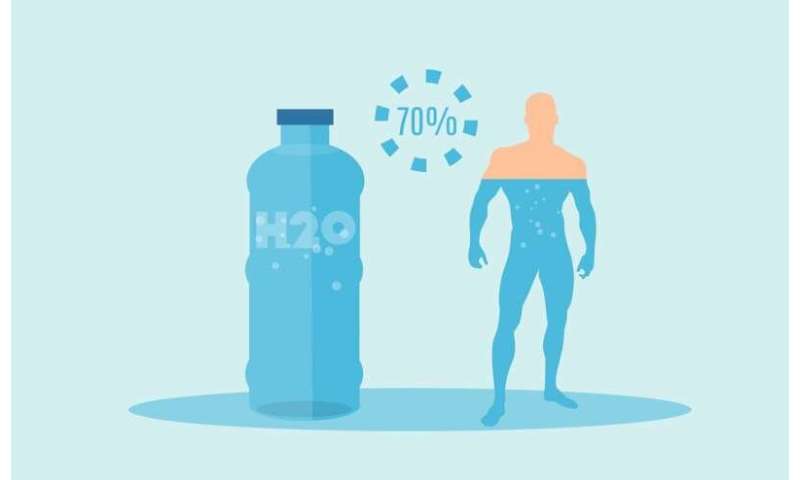Best of Last Week—Entangled beams of light, AI gadgets at CES 2023, good hydration linked to healthy aging

It was a good week for science research as a team at the University of São Paulo's Physics Institute's Laboratory for Coherent Manipulation of Atoms and Light developed a light source that produced two entangled beams of light—the optical-parametric-oscillator-based device was quantum-correlated. Also, a team at the U.S. Department of Energy's Lawrence Berkeley National Laboratory developed a new method of refrigeration—called "ionocaloric cooling," it is based on phase changes in a material that results in cooling. And in a bit of bad news, a trio of researchers, Michael Park, Erin Leahey and Russell Funk, analyzed millions of research papers and found that the rate of scientific breakthroughs is slowing over time.
In technology news, a team at the University of Michigan announced a new catalyst that is 10 times more efficient than previous sun-powered, water-splitting devices—possibly paving the way to cheap, sustainable hydrogen. And all indications suggest that AI-infused gadgets will be a major draw at this year's CES extravaganza in Las Vegas. After disrupted shows the past two years, CES 2023 is expected to be a massive event this time around. A team with members from MIT, Harvard University, DMAT srl, Udine, and Istituto Meccanica dei Materiali SA, determined how the ancient Romans made concrete that was so durable—they added millimeter-scale bright white mineral particles that gave the concrete self-healing capabilities. And BMW unveiled a prototype car called i Vision Dee at CES 2023, which, among other features such as projecting augmented reality images on the windshield, was able to change the color of its exterior on demand.
In other news, a team at Baylor College of Medicine found evidence showing that dawn-to-dusk dry fasting can lead to health benefits. In their study of immune cells, they found that fasting during daylight hours for weeks at a time could have anti-atherosclerotic, anti-inflammatory and anti-tumorigenic effects on the proteins in peripheral blood mononuclear cell immune cells. A team at the University of Oxford's School of Geography found that compound extreme heat and drought will hit approximately 90% of the world's population at some point in the future. And finally, a team at the U.S. National Institutes of Health found evidence that good hydration can be linked to healthy aging.
© 2023 Science X Network